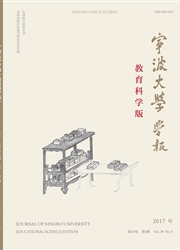

 中文摘要:
中文摘要:
本研究选取小学五年级学生为被试,采用元理解研究的经典范式——理解评价法来考察五年级学生的元理解水平,并在此基础上进一步考察了元理解的延迟效应。所谓延迟效应是指在学生阅读完文章后间隔一段时间再进行理解评价,其元理解的准确性要高于读完文章后立即进行理解评价的准确性。结果表明:小学五年级学生已具备一定的元理解水平,但元理解的准确性并不高;小学五年级学生的阅读元理解存在延迟效应。
 英文摘要:
英文摘要:
In this study,we selected Grade5 students as participants,adopted the canonical model of metacomprehension study-calibration of comprehension-to examine the metacomprehension leval of Grade 5 students.On the basis of this,we investigated the delayed-effect on metacomprehension further more.The delayed-effect refers to the accuracy of metacomprehension that generate Keywords after a delayed time is higher than generate keywords immediately.The results showed that,Grade 5 students have grasped some metacomprehension ability,but the accuracy is very poor.Reading metacomprehension was associated with delayed-effect in Grade 5 students.
 同期刊论文项目
同期刊论文项目
 同项目期刊论文
同项目期刊论文
 期刊信息
期刊信息
